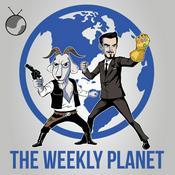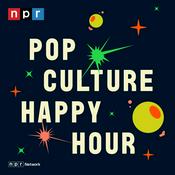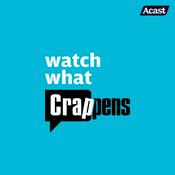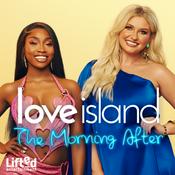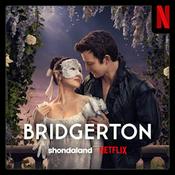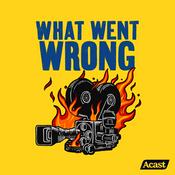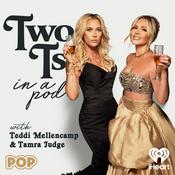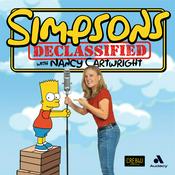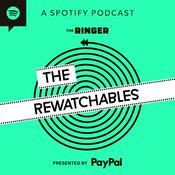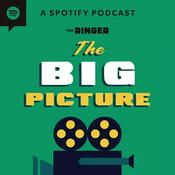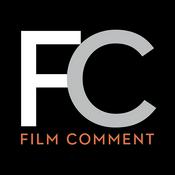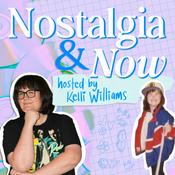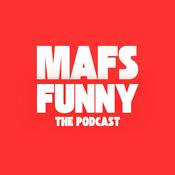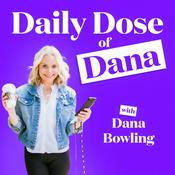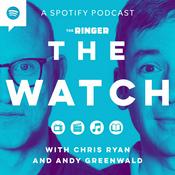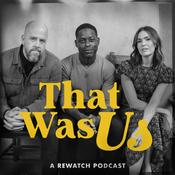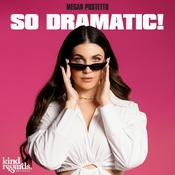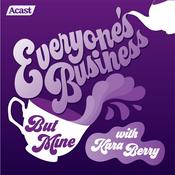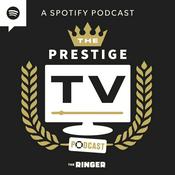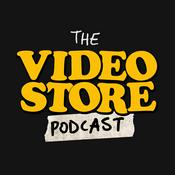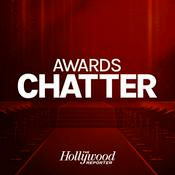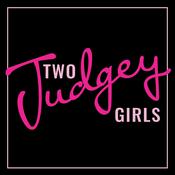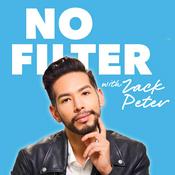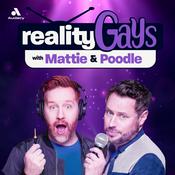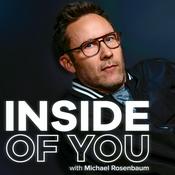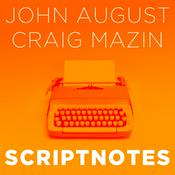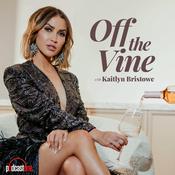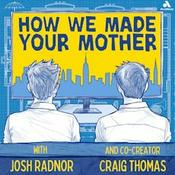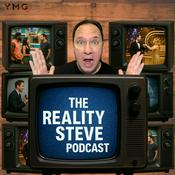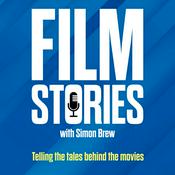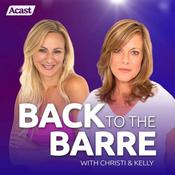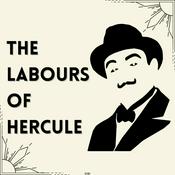Film & TV, The Creative Process: Acting, Directing, Writing, Cinematography, Producers, Composers, Costume Design, Talk Art & Creativity
Acting, Directing, Writing, Cinematography Producing Conversations: Creative Process Original Series
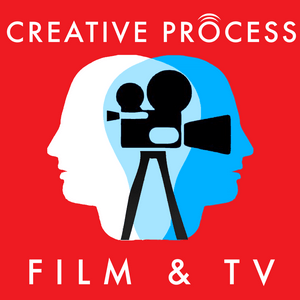
Latest episode
248 episodes
Twists, Truth & Tension - Creating Compelling TV with NIGEL MARCHANT & MEGAN GALLAGHER - Highlights
2025/11/17 | 12 mins.“We're at times where a lot of the arts are really suffering in multiple countries with funding and cost of living. Understandably, people come for the arts, but our job is at times to hold a mirror to society. We can learn a huge amount. It can really change everyone's perspective. So look, it could be escapism, and we all need that at times, but it also can have something that fundamentally can't be enacted just through journalism at times. I think when you dramatize something, it can reach the very core of an audience.”
Today, we'll be talking about the intense emotional toll of modern life, and how the deepest secrets often hide behind the most polished facades. My guests have dedicated their careers to crafting psychological dramas. Nigel Marchan tis the Managing Director and an Executive Producer at Carnival Films, the powerhouse behind some of television's most beloved and intricate dramas, from Downton Abbey to the television adaptation of The Day of Jackal. Megan Gallagheris a writer who understands the delicate mechanics of suspense and the human heart. She created and wrote the critically acclaimed series Borderliner, and most recently, the BBC thriller Wolf.
They’ve joined forces for the new limited series, All Her Fault (now streaming on Peacock). It’s an anxiety-inducing thriller adapted from Andrea Mara's novel and the show plunges us into the frantic world of a wealthy working mother, Marissa Irvine, after her five-year-old son disappears. Starring Sarah Snook in her first television role since Succession, the series starts with a rupture when Marissa’s son Milo is kidnapped and ripples into many lives, exploring momshaming, the guilt, blame, and sacrifice of motherhood. And what happens when domestic bliss turns to domestic misery.
Episode Website
www.creativeprocess.info/pod
Instagram:@creativeprocesspodcast
@carnivalfilms
X: @carnival_films
Facebook: Carnival FilmsALL HER FAULT starring SARAH SNOOK - Behind the Scenes w/ NIGEL MARCHANT & MEGAN GALLAGHER
2025/11/17 | 50 mins.“The people that we choose to love and the ones we choose to rely on and trust… Marissa and Jenny's relationship and that female friendship, that's what we watch happen in the series in real time. Whereas the marriages and the relationships that they're already in maybe aren't so perfect, the one we watch them choose is the one that's rewarding. It's so nice to listen to people's reactions to that relationship and how real that relationship feels. These two women, from a character perspective, have every reason to not get along or to hate each other or to yell at each other. That's the opposite of what each one of them does, and that just feels true and honest. I know a lot of women who I feel would act that way, be the best version of themselves in such an awful situation.”
Today, we'll be talking about the intense emotional toll of modern life, and how the deepest secrets often hide behind the most polished facades. My guests have dedicated their careers to crafting psychological dramas. Nigel Marchant is the Managing Director and an Executive Producer at Carnival Films, the powerhouse behind some of television's most beloved and intricate dramas, from Downton Abbey to the television adaptation of The Day of Jackal. Megan Gallagher is a writer who understands the delicate mechanics of suspense and the human heart. She created and wrote the critically acclaimed series Borderliner, and most recently, the BBC thriller Wolf.
They’ve joined forces for the new limited series, All Her Fault (now streaming on Peacock). It’s an anxiety-inducing thriller adapted from Andrea Mara's novel and the show plunges us into the frantic world of a wealthy working mother, Marissa Irvine, after her five-year-old son disappears. Starring Sarah Snook in her first television role since Succession, the series starts with a rupture when Marissa’s son Milo is kidnapped and ripples into many lives, exploring momshaming, the guilt, blame, and sacrifice of motherhood. And what happens when domestic bliss turns to domestic misery.
Episode Website
www.creativeprocess.info/pod
Instagram:@creativeprocesspodcast
@carnivalfilms
X: @carnival_films
Facebook: Carnival FilmsOn Mind Games, Power & Obsession - Showrunner HOWARD GORDON & Writer DANIEL PEARLE - Highlights
2025/11/09 | 17 mins.“How do you render something interior filmically? How do you communicate the details of the lost child, of the amount of time of the stuck creative process, and even the exterior, or the externalization of the house as a kind of hellish thing that's barely staying together—literally flooding with waste—and that you can't afford? So those are the details that we had to carefully figure out how to weave. But, you know, when you look at the first 10 minutes, it could be a horror movie. From that moment, a lot can happen. But what's important about it is that it sets the table for what does happen.” -Howard Gordon
Today, we explore the dark psychology of obsession, guilt, and the thin line between predator and victim. Our guests are two of television's most accomplished architects of high-stakes drama and moral ambiguity: Howard Gordon, the showrunner and executive producer whose work defined a generation of thrillers with 24 and the multi-award-winning Homeland; and Daniel Pearle, an executive producer and writer who brings a distinct, penetrating depth from his background as a celebrated playwright and his work on series like Accused and American Crime Story.
Episode Website
www.creativeprocess.info/pod
Instagram:@creativeprocesspodcastThe Beast in Me starring CLAIRE DANES - Behind the Scenes w/ HOWARD GORDON & DANIEL PEARLE
2025/11/09 | 46 mins.“And I think there's also just something about an unfettered or uncensored id that is so captivating. We all have that fantasy of doing exactly what we want with no consequences and sort of letting that go. I think when you see an athlete at the peak of their game, doing that embodied thing and living that dream, or when someone has actually done horrible things that you would never allow yourself to do, there is a fascination there. I had one teacher who said, "Anyone who drives you crazy or that you just cannot stand in life, put them in a play or put them in a scene, and the audience will love them." If someone has really gotten under your skin and you just cannot stand them, and you have a visceral reaction—like, "I just hate this person"—make them a character, and the audience will make them everyone's favorite character. There is something to that.” - Daniel Pearle
Today, we explore the dark psychology of obsession, guilt, and the thin line between predator and victim. Our guests are two of television's most accomplished architects of high-stakes drama and moral ambiguity: Howard Gordon, the showrunner and executive producer whose work defined a generation of thrillers with 24 and the multi-award-winning Homeland; and Daniel Pearle, an executive producer and writer who brings a distinct, penetrating depth from his background as a celebrated playwright and his work on series like Accused and American Crime Story..
Episode Website
www.creativeprocess.info/pod
Instagram:@creativeprocesspodcastIn the Presence of the DALAI LAMA - Doc. Director of WISDOM OF HAPPINESS - Highlights
2025/11/06 | 14 mins.“I can change my mind. I can reduce anger, hatred. Nothing to do with religion. All religions carry the message of love, loving kindness, and tolerance. With different views, there is a possibility to synthesize new ideas. If majority of the world leaders become female, world become safer. I feel that. Compassion is the key factor. Non-violence, compassion and self-confidence, these are key factors for happy individual, happy community, peaceful world. This century should be century of compassion, century of peace. No more bloodshed. We should develop a big “we,” rather than “we” or “they.” With these wings, you can fly.” -DALAI LAMA
For decades, the Dalai Lama has been a global symbol of peace, compassion, and resilience, a spiritual leader living in exile from his home in Tibet. But how do you capture the essence of his wisdom—the kind that can truly change a life—in a way that feels intimate and personal? My guest today, documentary filmmaker Barbara Miller, has managed to do just that in her new film, Wisdom of Happiness. It’s a beautiful film that feels less like a documentary and more like a private, heart-to-heart conversation, where he invites us into his thoughts and shares practical steps for finding inner peace in a chaotic world. She's dealt with anti-globalization, domestic violence, and the fight for female pleasure in her previous works. We’ll talk about how she shifted from exposing systemic pain to focusing on radical hope and her collaboration with Executive Producer Richard Gere and Manuel Bauer, the Dalai Lama’s personal photographer for the last thirty-five years, who made his cinematography debut with this film. She shares what the Dalai Lama taught her about living in harmony with our body, nature, and the world.
Episode Website
www.creativeprocess.info/pod
Instagram:@creativeprocesspodcast
More TV & Film podcasts
Trending TV & Film podcasts
About Film & TV, The Creative Process: Acting, Directing, Writing, Cinematography, Producers, Composers, Costume Design, Talk Art & Creativity
Film & TV episodes of the popular The Creative Process podcast. We speak to actors, directors, writers, cinematographers & variety of behind the scenes creatives about their work and how they forged their creative careers. To listen to ALL arts & creativity episodes of “The Creative Process · Arts, Culture & Society”, you’ll find our main podcast on Apple: tinyurl.com/thecreativepod, Spotify: tinyurl.com/thecreativespotify, or wherever you get your podcasts!
Exploring the fascinating minds of creative people. Conversations with writers, artists & creative thinkers across the Arts & STEM. We discuss their life, work & artistic practice. Winners of Oscar, Emmy, Tony, Pulitzer, leaders & public figures share real experiences & offer valuable insights. Notable guests and organizations include: David Rubin (Academy of Motion Picture Arts & Sciences), Neil Patrick Harris, Matthew Libatique (A Star is Born, Black Swan), Martin Ruhe (The Midnight Sky), Alice Brooks (In the Heights), Jack Thorne (Harry Potter & the Cursed Child), George Pelecanos (The Wire, The Deuce), Neil Gaiman (American Gods), Alan Edward Bell (The Hunger Games), David Hollander (Ray Donovan), Marian Macgowan (The Great), Paul Hirsch (Star Wars, Mission Impossible), Morgan Neville (20 Feet from Stardom), Carter Burwell (Carol, Twilight), Joe Mantegna, Robert Nathan (Law & Order, ER), Jane Alexander, John Powell (Solo: A Star Wars Story, The Bourne films), Stuart Dryburgh (The Piano), Amy Aniobi (Insecure), Salvador Pérez (President Costume Designers Guild, The Mindy Project), Cindy Chupack (Sex & the City, Modern Family), Daniel Handler a.k.a. Lemony Snicket (A Series of Unfortunate Events), Howard Rodman (Sundance Institute, Fmr. President Writers Guild of America West), Tom Perrotta (The Leftovers, Mrs. Fletcher), Marcelo Zarvos (Wonder, Fences), Delia Ephron (You’ve Got Mail), Ian Seabrook (Jungle Cruise, Batman v Superman), Tema Staig & Allison Vanore (Women in Media), Caroline Thompson (Edward Scissorhands), Jordan Kerner (Charlotte’s Web, Fried Green Tomatoes), Jonathan Furmanski (Search Party), Benh Zeitlin (Beasts of the Southern Wild), Harris Yulin, Denson Baker (Get Out), François Clemmons (Mister Rogers’ Neighborhood), James McDaniel (NYPD Blue), Trish Sie (Pitch Perfect 3), Peter Weller, Alan Jacobsen (The Lonliest Whale), Michael Maren (Shriver), Albert Serra (Last days of Louis XIV), Ante Cheng & Matthew Chuang (Blue Bayou), John Matysiak (Old Henry), Josh Pais, Linh Nga (Inside this Peace), among others.
The interviews are hosted by founder and creative educator Mia Funk with the participation of students, universities, and collaborators from around the world. These conversations are also part of our traveling exhibition.
www.creativeprocess.info
For The Creative Process podcasts from Seasons 1 & 2, visit: tinyurl.com/creativepod or creativeprocess.info/interviews-page-1, which has our complete directory of interviews, transcripts, artworks, and details about ways to get involved.INSTAGRAM @creativeprocesspodcast
Podcast websiteListen to Film & TV, The Creative Process: Acting, Directing, Writing, Cinematography, Producers, Composers, Costume Design, Talk Art & Creativity, The Weekly Planet and many other podcasts from around the world with the radio.net app

Get the free radio.net app
- Stations and podcasts to bookmark
- Stream via Wi-Fi or Bluetooth
- Supports Carplay & Android Auto
- Many other app features
Get the free radio.net app
- Stations and podcasts to bookmark
- Stream via Wi-Fi or Bluetooth
- Supports Carplay & Android Auto
- Many other app features


Film & TV, The Creative Process: Acting, Directing, Writing, Cinematography, Producers, Composers, Costume Design, Talk Art & Creativity
Scan code,
download the app,
start listening.
download the app,
start listening.

